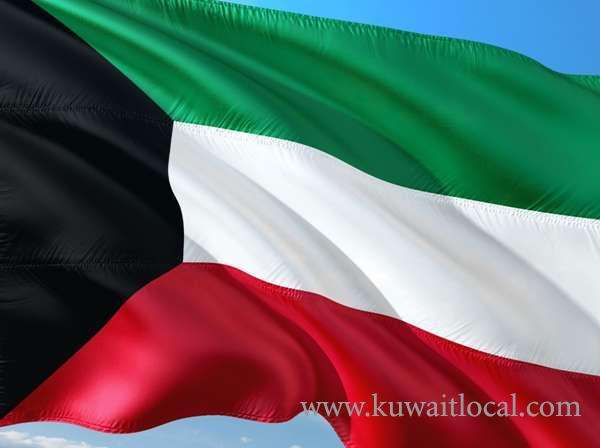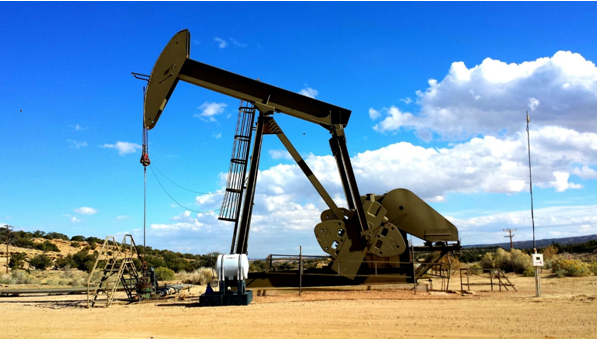Latest News
- Internet Censorship Pact Condemned By MP-elect Bushehri
- Police Arrest Two Men Previously Convicted In Misdemeanor Cases
- The Theft Of 50 Birds In Kuwait’s Barr Abdaliyah Area
- Anti-Corruption Authority Efforts Embrace An Integrated Work Sys...
- European Union Keen On Exempting Kuwaitis From Schengen Visa
- Expat Admits Killing His Compatriot In A Quarrel Over Cash
- Decomposed Corpse Of A Girl Found In Nugra Flat
- 4.4% Private Sector Employment Sparks Concerns In Kuwait
- CSC Separates Job Appointments From Specific Agencies
- Municipality Shuts Store And Issues 23 Violations
- Kuwaiti Tweeter Jailed For Insulting Rulers, Judiciary, And Nati...
- MoH Opens Registration For Scholarships And Study Leaves
Trading In Kuwait: How Kuwait's Bourse Is Impacted By External Factors

Kuwait’s stock exchange has seen a boost in recent days. The bourse rose last week (as at October 23rd) into the green, with the All Shares Index trading up 33.83 points to 5,763.79, mostly led by blue chip companies. Kuwait’s Premier Market was also up 49.66 points to 6,295.79, a gain of 121 points in October. The Main Market was up 1.01 at 4,724.63 points.
The top performing stocks were consumer goods, which saw a 2.7% increase. Consumer Services were the biggest losers, down 1.3%. The banks were top performers in both volume and value, with 54.3 million shares worth KD 22.3 million.
Despite oil and gas making up around half of Kuwait’s GDP, they only make up 1% of the market cap currently. Banking companies dominate the bourse at present, so there is a disconnect between the main drivers of Kuwait’s economy and its stock exchange. Kuwait is looking to redress this imbalance by adding the Government owned oil companies to the bourse.
This could benefit the markets in Kuwait. Due to recent fluctuations in the price of oil, driven in part by the September 14th oil attacks in Saudi Arabia, the value of oil has risen recently. If oil continues to gain value the markets could benefit from this greater exposure to oil. If oil prices fluctuate though, the stock markets in Kuwait could be more exposed to the impact of changing oil values, and if the prices fall the stocks will take a hit.

Trade wars with the US and China are also having an impact on Kuwait’s economy. Decline in trade with the US and China will impact the global economy, according to Moody’s. The Middle East is responsible for 40% of China’s oil imports. Demand for oil in China could fall if Chinese industry slows down – bad news for Kuwait and the rest of the Middle East. The Middle East could also soon be forced to pick sides between the US and China if trade wars continue.
New tariffs imposed will make imports more expensive, meaning prices for goods will increase and consumer purchasing will drop. The resulting trade decline could cause an economic slowdown.
China’s threat to impose more tariffs on US goods has previously sent Middle Eastern stocks down, triggering concerns that a world-wide recession could be looming. China is the biggest trade partner to the GCC bloc, which relies on oil export profits to fund its governments. If China reduces its exports, these trade partners could all suffer.
As trade wars continue between China and the US, the two countries are looking elsewhere, including the Middle East, for trade partners. The Kuwaiti Government is currently in talks with China about the creation of a ‘Silk Road Fund’ to give investment in projects to Kuwait worth $10 billion as part of China’s ‘One Belt One Road’ scheme.
The GCC (Gulf Cooperation Council) has had problems in the past year too, and its future looks uncertain, as rows have broken out among its members over accusations of Doha funding terrorist activity. Its last meeting was poorly attended, indicating the end could be in sight for this trade alliance. Kuwait is keen to heal tensions in the GCC as the ongoing conflict could pose a threat to its economy as well as security of the region.
Trending News
-
 Kuwait Implements Home Biometrics Services Ahead O...
14 April 2024
Kuwait Implements Home Biometrics Services Ahead O...
14 April 2024 -
 Kuwait Airways Provides Update On Flight Schedule...
14 April 2024
Kuwait Airways Provides Update On Flight Schedule...
14 April 2024 -
 Kuwait Airways Introduces Convenient Home Luggage...
15 April 2024
Kuwait Airways Introduces Convenient Home Luggage...
15 April 2024 -
 Expat Residency Law Amended By Kuwait Ministerial...
20 April 2024
Expat Residency Law Amended By Kuwait Ministerial...
20 April 2024 -
 Gathering For Eid Al-Fitr Prayers: Kuwaiti Citizen...
10 April 2024
Gathering For Eid Al-Fitr Prayers: Kuwaiti Citizen...
10 April 2024 -
 Two Expats Are Arrested For Stealing From Salmiya...
17 April 2024
Two Expats Are Arrested For Stealing From Salmiya...
17 April 2024 -
 An Egyptian Expat Dies At Kuwait's Airport
11 April 2024
An Egyptian Expat Dies At Kuwait's Airport
11 April 2024 -
 Bay Zero Water Park Kuwait: Summer Season Opens Ei...
11 April 2024
Bay Zero Water Park Kuwait: Summer Season Opens Ei...
11 April 2024 -
 Temperature Increases Cause Electricity Load Index...
21 April 2024
Temperature Increases Cause Electricity Load Index...
21 April 2024 -
 Kuwait Airways Resumes Flights To Beirut And Oman...
15 April 2024
Kuwait Airways Resumes Flights To Beirut And Oman...
15 April 2024












Comments Post Comment